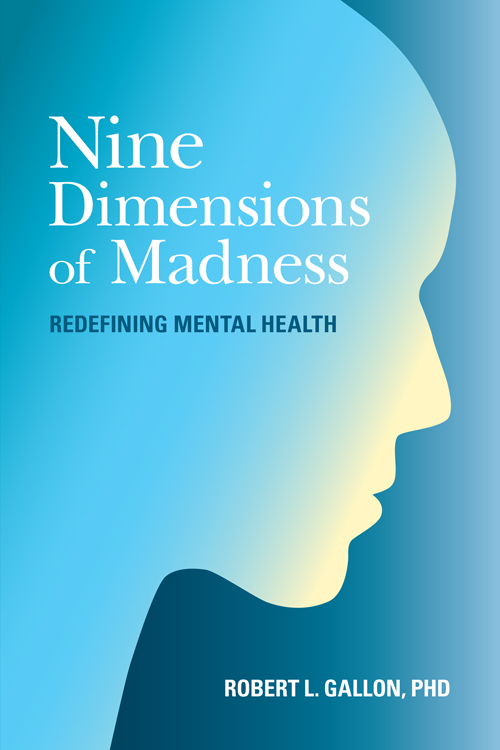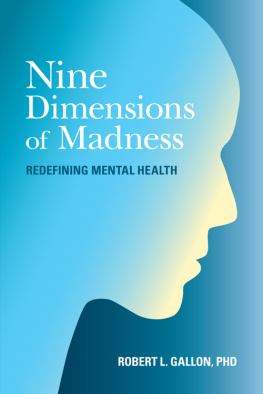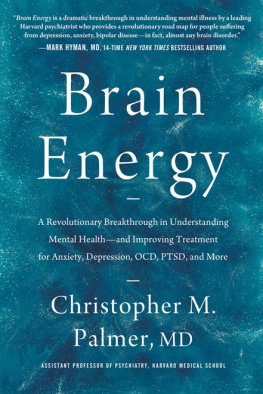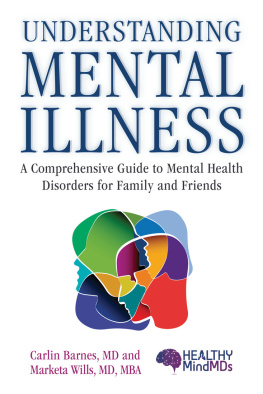
An important read for anyone in the education field. It is interesting and informative and offers a new and innovative way to look at mental disorders. I recommend it to everyone who wants to know more about themselves and how their minds work.
Dr. Frederick Dembowski, president of the International Association of Organizational Innovation
Nine Dimensions of Madness is wonderfully written. It is a fascinating volume that will challenge what you think you know about mental disorder, what we decide is normal or disordered, and how we treat psychiatric illness. In this well-researched, thought provoking and courageous volume, Robert Gallon argues that how we address the treatment of people we see as having a mental disorder needs to change. He questions what is really disordered, and argues instead for a biopsychosocial model that presents an integrated view of the dimensions of dysfunction. He encourages us to be more critical of the apparent biological basis to mental disorders and methods of treatment. Most importantly, Gallon argues for a new solution to our declining trust in a system that overprescribes mood altering drugs as a quick fix for what are often normal human responses to crisis and suffering.
Penny Spikins, PhD, author of How Compassion Made Us Human: the Evolutionary Origins of Tenderness, Trust & Morality
A comprehensive, innovative, and provocative work that challenges many of the medical establishments assumptions. In addition to medical personnel, the general public will find this book a fascinating, readable new approach to mental health issues and treatments for a wide variety of disorders including ADHD, depression, and even internet addiction.
Allan D. Currie, MD, FACP, former Chief of the Medical Service, Eastern Maine Medical Center
Nine Dimensions of Madness
REDEFINING MENTAL HEALTH
Robert L. Gallon

North Atlantic Books
Berkeley, California
Copyright 2015 by Robert L. Gallon. All rights reserved. No portion of this book, except for brief review, may be reproduced, stored in a retrieval system, or transmitted in any form or by any meanselectronic, mechanical, photocopying, recording, or otherwisewithout the written permission of the publisher. For information contact North Atlantic Books.
Published by
North Atlantic Books
Berkeley, California
Cover design by Suzanne Albertson
Nine Dimensions of Madness: Redefining Mental Health is sponsored and published by the Society for the Study of Native Arts and Sciences (dba North Atlantic Books), an educational nonprofit based in Berkeley, California, that collaborates with partners to develop cross-cultural perspectives, nurture holistic views of art, science, the humanities, and healing, and seed personal and global transformation by publishing work on the relationship of body, spirit, and nature.
North Atlantic Books publications are available through most bookstores. For further information, visit our website at www.northatlanticbooks.com or call 800-733-3000.
MEDICAL DISCLAIMER: The following information is intended for general information purposes only. Individuals should always see their health care provider before administering any suggestions made in this book. Any application of the material set forth in the following pages is at the readers discretion and is his or her sole responsibility.
Library of Congress Cataloging-in-Publication Data
Gallon, Robert L., author.
Nine dimensions of madness : redefining mental health / Robert Gallon.
p. ; cm.
Includes bibliographical references and .
Summary: This book challenges the current medicalization of mental disorders by proposing a system of viewing mental problems as varying dimensions of dysfunction, rather than as pathological, thus encouraging people to become active participants in their own lives and empowering them to cope with lifes difficultiesProvided by publisher.
ISBN 978-1-58394-926-9 (trade : alk. paper)ISBN 978-1-58394-927-6 (ebook) I. Society for the Study of Native Arts and Sciences, sponsoring body. II. Title. [DNLM: 1. Mental Disordersetiology. 2. Mental Health. WM 101]
RC454
616.89dc23
2015003833
I dedicate this book to my grandchildren, Jacob, Zoe, and Kate, who are my posterity and who, I hope, will read my book someday.
Contents
I had, of course, been thinking of writing a book for many years, but I never got around to doing it. Then Professor Richard Borden of College of the Atlantic persuaded me to teach a course called Abnormal Psychology and told me he was writing a book for North Atlantic Books. Rich told me that the founder of the press, Richard Grossinger, had a home in a neighboring town, and he said he would introduce me if I wished. I got together some materials, then spoke to Richard at length. Initially, Richard was very discouraging, but he warmed to the idea, and I was committed. I thank him for his support, because I never wouldve written it otherwise. I also very much appreciate the support I received from the editors at North Atlantic, starting with Tim McKee, who gave me extensive advice through the developmental phase, then to Leslie Larson, who took charge of the editing, and to my copy editor, Jennifer Eastman.
I taught material this book is based on at Acadia Senior College several times, and these classes, mostly composed of retired professionals, were a very helpful sounding board. One of my favorite students, Julius Krevans, MD, Emeritus Chancellor of the University of California at San Francisco, read the entire book, made insightful comments, and encouraged me. His wife, Pat, also read sections.
Other people who read all or most of the book were Howard Ehrlichman, emeritus psychology professor, and Frederick Dembowski, emeritus dean of educational leadership. My long-time neuropsychological testing assistant, Linda Currie, also read the book and offered her comments. Finally, my wife, Rita, has read it and supported me throughout the long process. All of these people were extremely helpful but are not responsible for any of the contents.
We are a psychiatric nation. As University of Chicago anthropologist Tonya Lurhmann put it, psychiatric knowledge seeps into culture like dye from a red shirt in hot water. Psychiatric disorders are as familiar to us as the names of movie stars. Every difficulty we may face in life has a psychiatric label to explain it. Psychiatric drugs are constantly marketed to us on television and in magazines as the cure for all that ail us. They are routinely prescribed by our physicians and taken by a great many of ustheyre said to be the solution to our troubles.
The marketing of psychiatric explanations and treatments has become been so successful that we almost never ask some basic questions. Are mental disorders legitimate medical diseases that can be diagnosed and treated? Has giving people these psychiatric labels helped them lead better lives? Has reliance on psychiatric drugs been a blessing or a curse? And, in general, are we heading in the right direction for good mental health, or are we merely increasing the power and income of mental-health professionals and pharmaceutical companies?
Psychiatric notions arent only an American story; they have spread across the globe. The giant international drug companies and American psychiatrists have combined to push the medical ideas of psychopathology around the world. Journalist Ethan Watters tells an anecdote that demonstrates this. The Japanese had a name for people who are extremely incapacitated by symptoms that we might term














